Landscape Gardening in Belmont: Transforming Outdoor Spaces
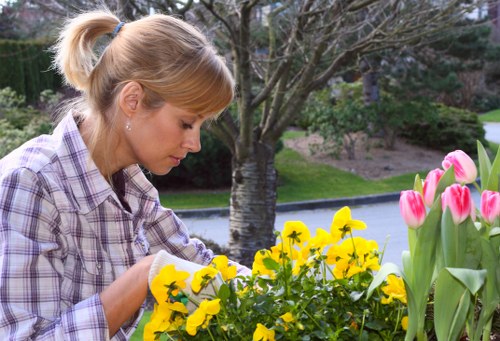
Introduction to Landscape Gardening
Landscape gardening in Belmont offers residents the opportunity to create beautiful and functional outdoor spaces. Whether you have a sprawling backyard or a compact urban garden, landscape gardening can enhance the aesthetic appeal and increase the value of your property.
Belmont's unique climate and soil conditions provide a perfect backdrop for a variety of plants and garden designs. From lush green lawns to vibrant flowerbeds, the possibilities are endless for those looking to invest in landscape gardening.
In this article, we will explore the key elements of landscape gardening in Belmont, providing you with the knowledge and inspiration needed to embark on your gardening journey.
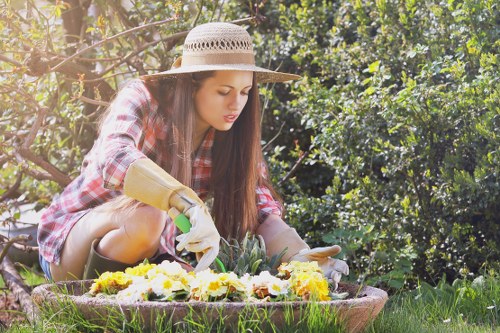
Understanding Belmont's Climate and Soil
To achieve a thriving landscape garden in Belmont, it's essential to understand the local climate and soil composition. Belmont experiences a temperate climate with four distinct seasons, allowing for a diverse range of plant species to flourish.
The soil in Belmont varies, but it generally consists of a mix of clay, sand, and loam. Conducting a soil test can help determine the pH level and nutrient content, ensuring that your plants receive the optimal conditions for growth.
By selecting plants that are well-suited to Belmont's climate and soil, you can create a resilient and low-maintenance garden that remains beautiful year-round.
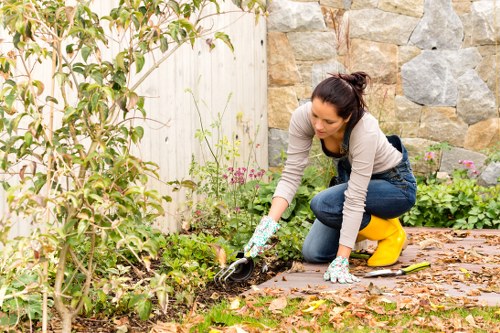
Essential Elements of Landscape Gardening
Plant Selection
Choosing the right plants is the foundation of successful landscape gardening. In Belmont, a mix of native and adaptable non-native plants can create a vibrant and sustainable garden.
Consider incorporating a variety of trees, shrubs, perennials, and annuals to add texture, color, and structure to your garden. Native plants are particularly beneficial as they require less water and are more resistant to local pests and diseases.
Some popular plant choices for Belmont gardens include:
- Flowering shrubs like hydrangeas and azaleas
- Ornamental grasses for added movement
- Perennials such as lavender and salvia
- Seasonal annuals for continuous color
Hardscaping Elements
Hardscaping refers to the non-living components of your garden, such as pathways, patios, and walls. Integrating hardscaping elements can provide structure and functionality to your landscape.
Popular hardscaping materials in Belmont include natural stone, brick, and concrete. These materials are not only durable but also aesthetically pleasing, complementing the natural beauty of your garden.
Consider adding features like:
- Garden pathways to guide visitors through different areas
- Patios or seating areas for outdoor gatherings
- Retaining walls to manage slopes and add depth
Water Features
Incorporating water features such as fountains, ponds, or waterfalls can add a serene and soothing element to your garden. Water features attract wildlife and create a focal point in your landscape.
When planning a water feature, consider the size, maintenance requirements, and integration with existing garden elements. Properly placed water features can enhance the overall ambiance and provide a calming atmosphere.
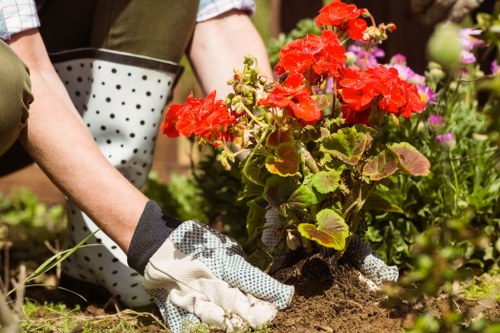
Designing Your Landscape Garden
Creating a Layout
A well-thought-out layout is crucial for a cohesive and functional landscape garden. Start by assessing your garden space, noting existing features, sunlight patterns, and soil conditions.
Sketch a rough plan, dividing the garden into different zones such as dining areas, flower beds, and vegetable plots. This will help you allocate space efficiently and create a balanced design.
Consider the following tips when designing your layout:
- Ensure pathways are wide enough for easy navigation
- Position seating areas in shaded or sheltered spots
- Group plants with similar water and sunlight needs together
Choosing Colors and Textures
Color and texture play a significant role in the visual appeal of your garden. Select a color palette that complements your home's exterior and creates a harmonious environment.
Mixing different textures, such as combining leafy plants with those that have unique foliage patterns, can add depth and interest to your landscape.
Use contrasting colors to highlight specific areas or create focal points, ensuring your garden remains vibrant and engaging throughout the seasons.
Sustainable Gardening Practices
Adopting sustainable gardening practices not only benefits the environment but also enhances the health and longevity of your garden. Implementing techniques such as rainwater harvesting, composting, and using organic fertilizers can promote a thriving ecosystem.
Additionally, minimizing the use of chemical pesticides and herbicides ensures that your garden remains safe for beneficial insects and wildlife.
By prioritizing sustainability, you contribute to a greener Belmont and create a resilient garden that can withstand environmental changes.
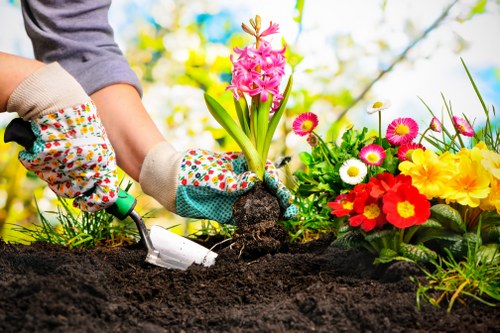
Maintaining Your Landscape Garden
Regular Maintenance Tasks
Maintaining your landscape garden requires consistent effort and attention. Regular tasks include watering, pruning, weeding, and fertilizing to ensure your plants remain healthy and vibrant.
Implement a maintenance schedule tailored to your garden's specific needs, taking into account the growth rates and seasonal requirements of your plants.
Key maintenance activities include:
- Watering deeply and infrequently to encourage strong root growth
- Pruning dead or overgrown branches to promote airflow and prevent disease
- Removing weeds promptly to reduce competition for nutrients
- Applying mulch to retain moisture and suppress weed growth
Pest and Disease Management
Protecting your garden from pests and diseases is essential for maintaining its beauty and health. Regularly inspect your plants for signs of infestation or illness, addressing issues promptly to prevent widespread damage.
Use natural pest control methods, such as introducing beneficial insects or using organic sprays, to manage pests without harming the environment.
Implementing preventive measures, like proper spacing and adequate airflow, can reduce the likelihood of disease outbreaks in your garden.
Seasonal Care
Different seasons bring unique challenges and opportunities for your landscape garden. Adjust your maintenance routine to accommodate seasonal changes, ensuring your garden remains resilient throughout the year.
In spring, focus on planting new species and preparing beds for growth. Summer requires diligent watering and pest control, while autumn involves clearing fallen leaves and preparing plants for winter.
Winter care includes protecting sensitive plants from frost and planning for next year's garden layout, ensuring a smooth transition through the seasons.
Choosing the Right Landscape Gardening Services in Belmont
Factors to Consider
Selecting a reputable landscape gardening service in Belmont is crucial for achieving the desired results. Consider factors such as experience, portfolio, customer reviews, and pricing when making your decision.
It's important to choose a service that understands the local climate and soil conditions, ensuring they can recommend the best plants and materials for your garden.
Additionally, clear communication and a shared vision between you and your landscaper can lead to a more successful and satisfying outcome.
Benefits of Professional Landscaping
Hiring professional landscapers offers numerous benefits, including:
- Expertise in design and plant selection
- Access to quality materials and resources
- Time and effort savings
- Enhanced property value
Professionals can also provide ongoing maintenance services, ensuring your garden remains beautiful and healthy with minimal effort on your part.
Customizing Your Landscape
Your landscape garden should reflect your personal style and meet your specific needs. Whether you desire a tranquil retreat, an entertaining area, or a productive vegetable garden, professional landscapers can tailor their services to suit your preferences.
Discuss your vision and requirements with your chosen landscaping service to create a customized plan that transforms your outdoor space into a personalized oasis.
Conclusion
Landscape gardening in Belmont is a rewarding endeavor that enhances the beauty and functionality of your outdoor spaces. By understanding the local climate and soil, selecting the right plants, and incorporating essential design elements, you can create a stunning garden that thrives year-round.
Regular maintenance and professional landscaping services further ensure the longevity and appeal of your garden, providing a peaceful and inviting environment for you and your family to enjoy.
Ready to transform your outdoor space? Contact us today to start your landscape gardening journey in Belmont.
